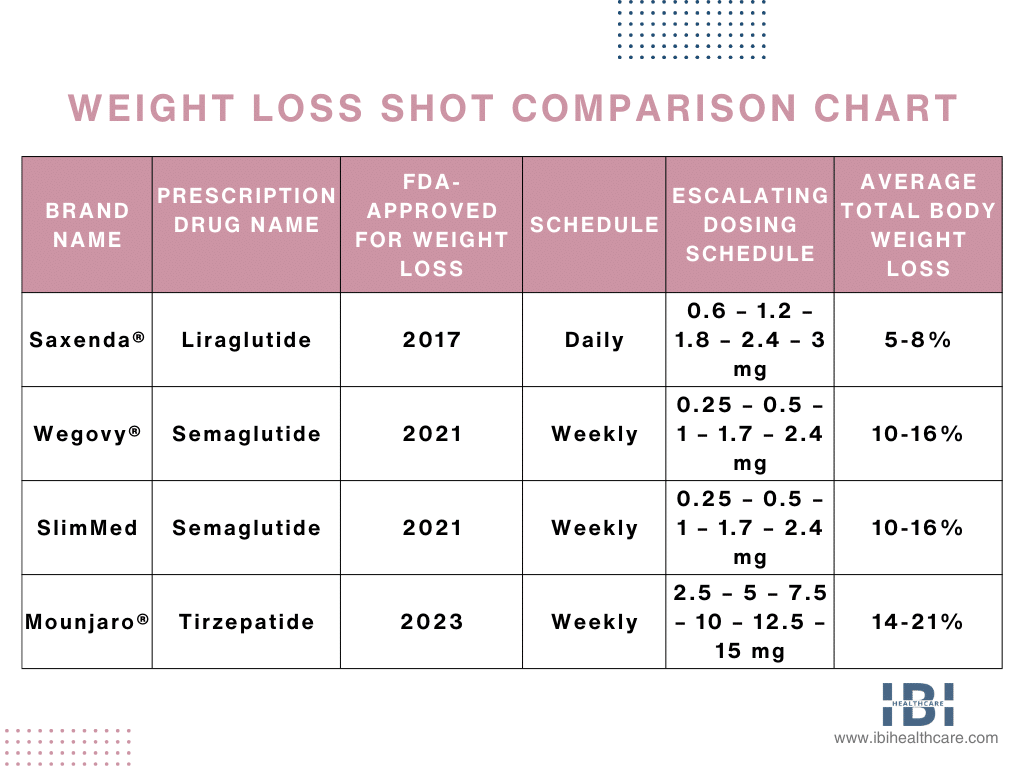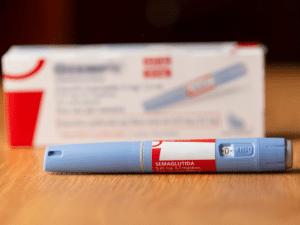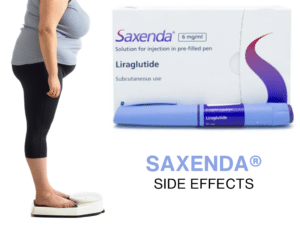Today we are going to talk about these new weight loss shots. Provide an overview of their history and some clinical trial weight loss results. So individuals can determine if they would benefit from this type of weight loss assistance. And which weight loss shot would be the best for them?
It is really hard to lose weight, ask anyone who has tried! From those who have a significant amount of weight to lose to the individuals who have less than 30 pounds. It can be a real challenge. Our bodies, our age, genetics, and metabolism work against us. Then the scale just won’t budge. Despite us only eating a single lettuce leaf for dinner… not really but it feels like it, right?
For years, drug manufacturers have been attempting to produce a diet pill that is both safe and effective. One of the first companies to develop a diet pill was Obetrol. It was popular in the U.S. in the 1950s and 1960s. The ingredients in the original formula included amphetamine mixed salts that included methamphetamine. What a disaster!
Since then, several different companies have marketed weight loss drugs. Each with its issues and each offers underwhelming results. Finally, the FDA approved the first weight loss injection for treating obesity in 2017. In June of 2021, the FDA approved another very promising weight loss shot. Another weight loss shot is currently undergoing “fast-track” approval.
Where Did These Weight Loss Shots Come From?
Consequently, weight loss shots derived from medications to treat diabetes started gaining traction among those looking to shed extra pounds. Significantly, people now widely use these shots to help them lose weight in a safe, convenient way. GLP-1 receptor agonists mimic GLP-1 to treat type 2 diabetes. Consequently, they activate receptors in the body that allow the body to regulate blood glucose levels.
What is Glucagon-like Peptide 1?
To better comprehend how these weight loss drugs work. We need to understand how the hormones in our bodies respond to food.
Glucagon-like peptide 1 is a hormone. That belongs to a group of hormones in our body called incretins that are responsible for the secretion of insulin. Called “glucagon-like,” these hormones share common traits and originate from the same source. Concentrated in small intestine cells, glucagon-like peptide 1 (GLP-1) plays a key role in its release. Though the central nervous system and pancreas also produce the hormone in smaller amounts.
Glucagon-like peptide 1 interacts with the appetite center in the brain to cause a feeling of fullness between meals. It also slows the rate of digestion causing the stomach to stay full longer.
Glucagon is also responsible for:
- Converting certain amino acids into glucose.
- Breaking down triglycerides (stored fats) into fatty acids for the cells to use as energy (burns fat).
- Promoting the liver to process and break down glycogen and release it into the bloodstream as glucose (sugar). Glycogen is a stored form of glucose. It a packaged up until glucagon comes along and unpacks it and releases it into the bloodstream.
Glucagon keeps the blood sugar levels in our body high enough for our bodies to function properly. It responds differently depending on what we eat. When we eat carbohydrates the levels of glucagon in our blood decrease. Even so, our blood sugar levels do not get too high and when we eat protein, they rise. When we understand the function of glucagon. It makes sense that prescription drugs that stimulate this hormone would help with weight loss.
Which Shot For Weight Loss Came First?
Victoza And Saxenda (Liraglutide)
In 2010, the FDA approved Liraglutide (marketed as Victoza) as the first GLP-1 receptor agonist drug to treat diabetes. Subsequently, In 2017, Saxenda® released as a brand name for the same drug to tackle obesity. Patients administer Saxenda via injection in any “fatty” location, most commonly the stomach, as a daily shot for weight loss.
Ozempic and Wegovy (Semaglutide)
Since 2017, doctors used Ozempic (marketed as Semaglutide) with FDA approval to control type 2 diabetes in patients. In June of 2021, it gained FDA approval under the brand name Wegovy® for the treatment of obesity. Patients administer the Wegovy® weight loss shot once a week using a preloaded one-time-use injection pen. Most patients prefer to administer their weight loss shots in the stomach area.
SlimMed
IBI Healthcare Institute has created a proprietary blend of Semaglutide. A prescription medication used for over a decade to treat type II diabetes and Levocarnitine. That aids in fat metabolism, specifically for weight loss. Administer SlimMed weekly through pre–filled syringes subcutaneously.
Mounjaro (Tirzepatide)
In May 2022, the FDA approved a new medication to treat diabetes. Naturally, GLP-1 and GIP–hormones responsible for regulating blood sugar–are present in our bodies. Mounjaro® is the first medication that mimics and activates both these natural receptors. Therefore has improved control over blood sugar regulation. The clinical trials showed Mounjaro was more effective in controlling blood sugar levels than other diabetes medications.
The FDA is “fast-tracking” approval for Mounjaro as an obesity treatment. Similarly to Ozempic, Mounjaro is a weekly injection, that doctors administer beneath the skin. As a result, healthcare providers administer all of these weight-loss shots using an escalating dosing schedule. Patients begin their treatment with the lowest dose for 4 weeks before moving up to the next dose. They gradually increase in strength until reaching the highest dose where they will remain for as long as necessary.
How to Choose a Weight Loss Shot?
See the comparison chart below to help decide the best weight loss shot for you.

Which are the Best Weight Loss Shots in the Clinical Trials?
Yet remarkably, Mounjaro is now eclipsing even those impressive results with an average weight loss of apparently 17.8%. Despite Semiglutide’s impressive 15.8% average weight loss in the 68-week clinical trial. Mounjaro is now exceeding this record with an average 17.8% weight loss. Ultimately surpassing liraglutide’s 6.4% average weight loss in the same trials.
Experts anticipate that Mounjaro’s 15mg dose will surpass other weight loss drugs, with 900 participants in clinical trial phase 3. Already, in the first trial of 2,539 patients. The 15mg dose achieved an average weight loss of 22.5%, exceeding Semiglutide’s average by 12 pounds. Subsequently, keep an eye out for Mounjaro’s results.
Are There Downsides to These New Weight Loss Shots?
The emergence of these weight loss shots seems like an amazing tool to combat obesity in the USA.
Gradually dosing, however, there can be nausea, vomiting, diarrhea, dizziness, constipation, and stomach upset associated with these weight loss injections. Nevertheless, despite these side effects, many people find the injections to be an effective way to lose weight.
Other more serious side effects may occur and these injections caused a type of thyroid cancer in laboratory rats. Since these medications are fairly new, the long-term side effects are unknown.
Furthermore, weight loss injections can aid in reaching a healthy weight, but patients should not solely rely on them long-term. Therefore, it is important to also learn portion control and develop better habits to promote weight loss and prevent obesity. Nevertheless, these injections can help patients get into a healthier lifestyle.
Patients should learn healthy lifestyle habits, such as eating a healthy diet, getting sufficient sleep, and exercising daily. Furthermore, these habits are critical for their well-being.
When combined with a healthy diet and regular exercise. Weight-loss injections can help unsuccessful patients who have already tried traditional methods of weight loss. Furthermore, weight-loss medications can synergistically augment non-surgical weight-loss procedures to provide optimal results. Ultimately, these treatments can promote significant weight loss and improve overall health. Consult with medical weight loss specialists to further evaluate if these weight loss shots right choice and contribute to support the weight loss journey.











